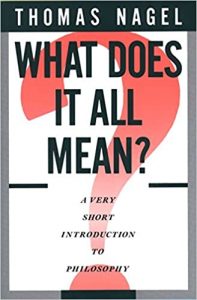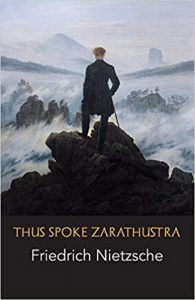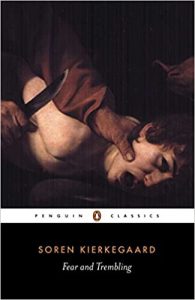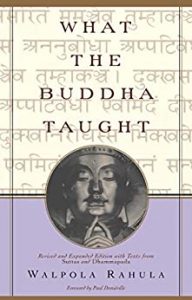Philosophy.
It started out as the ancient’s first (and only) form of science. Everything we have today, biology, physics, economics, sociology, chemistry started out as philosophy.
This is why Sir Isaac Newton called himself a “natural philosopher”, and titled the book that describes the basic fundamental forces of physics as “Mathematical Principles of Natural Philosophy”.
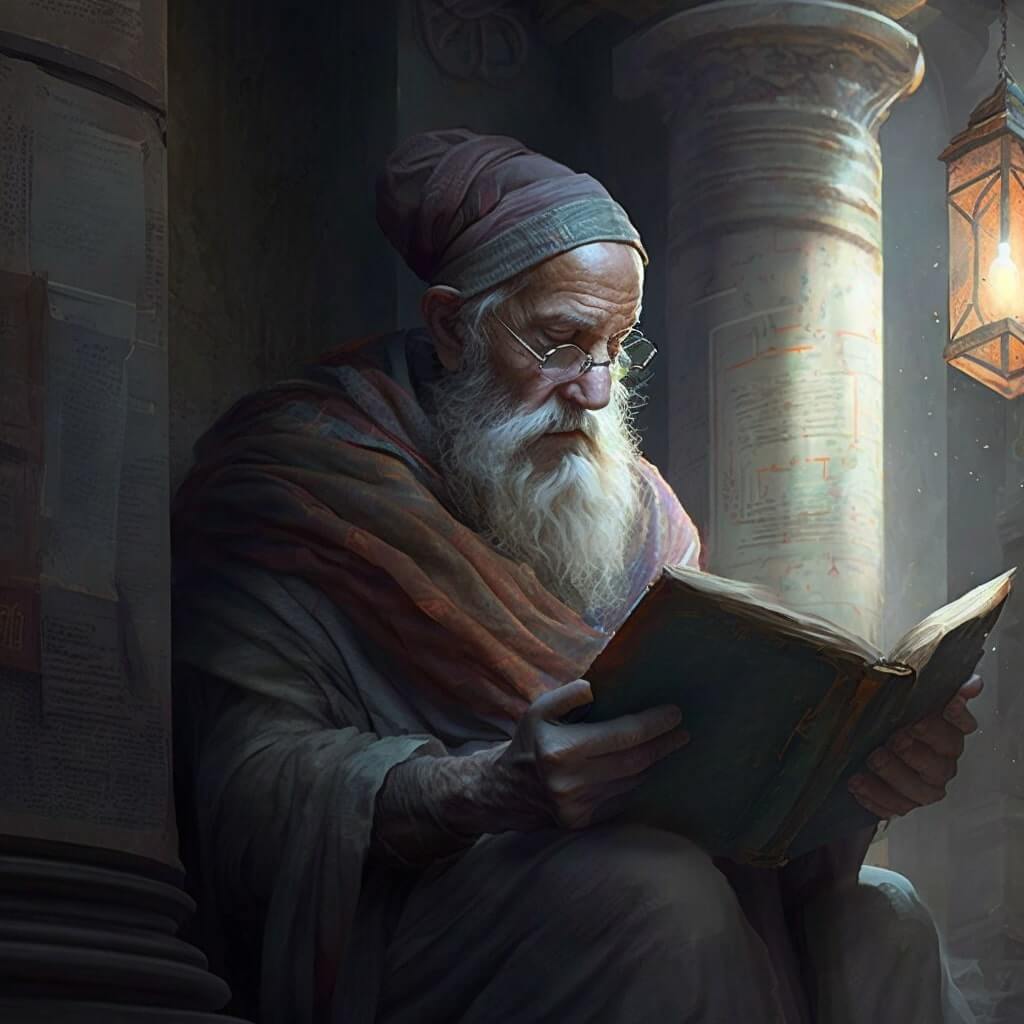
One by one, as each branch of branch of philosophy accumulated more and more knowledge, they separated and became their own science.
This is why philosophy today seems empty and superseded in importance by science.
However, this is only a false impression. Nowadays philosophy tries to answer what science cannot (yet).
Who we are, why are we here, why do we know what we know, and how to live life well are still fundamental questions that are still yearning for an answer.
- Introductory philosophy books for beginners
- The best & most important philosophy books ever written
- Philosophy of mind books
- New & Modern philosophy books
- Stoic Philosophy Books
- Political philosophy books
- Christian philosophy books
- Philosophy of science books
- Best Eastern, Buddhist & Chinese philosophy books
Introductory philosophy books for beginners
What does it all mean? A Very Short Introduction to Philosophy by Thomas Nagel
A short overview of the biggest philosophical problems in history, written in concise and easy to understand language.,
Also talks how these philosophical problems impact your life, including:
- How Do We Know Anything?
- Other minds.
- The Mind-Body Problem.
- The Meaning of Words.
- Free Will.
- Right and Wrong.
- Justice
- Death
- The Meaning of Life.
Sophie’s World by Jostein Gaarder
An enjoyable introductory book for philosophy, written in a novel form.
Tells the story of Sophie, a 14-year old teenager, who becomes the student of a famous philosopher.
Eventually, Sophie discovers something is amiss with the world she lives in and must use her newfound philosophical knowledge to uncover the truth and set things right.
A History of Western Philosophy by Bertrand Russell
Hands down the best history of philosophy book. It is a 900 page book containing summaries of all the most important Western philosophical ideas in history, as well as short biographies of many important and famous Western philosophers.
The Pig that Wants to be Eaten and 99 other thought experiments by Julian Baggini
A short collection of philosophical thought experiments, riddles and other philosophical exercises.
These are designed to punish your brain and force it to think outside the box.
You’ll obtain a deeper understanding on why some philosophical problems are so difficult to crack, and why there are no simple solutions.
An excellent book for those who want to devote more time to think their way through philosophical problems.
Think by Simon Blackburn
An introductory book to philosophy that explores deeply personal philosophical questions: Who am I? What is the world? Does god exist? Do I have a free will?
In general, this book focuses almost exclusively on philosophy of the mind, free will and religious philosophy.
The best & most important philosophy books ever written
Five Dialogues of Plato
“The safest general characterization of the European philosophical tradition is that it consists of a series of footnotes to Plato” by Alfred North Whitehead
Plato wrote his philosophy in dialogue form, where his ideas and concepts were discusses and explained as part of conversations between various people.
Some of the concepts discussed include: immortality of the soul, what is the nature of gods, whether gods are worth worshipping or not, how to become virtuous and what happens after death.
Nicomachean Ethics by Aristotle
Nicomachean Ethics is one of the most important books about ethics.
Ethics is a philosophical field that seeks to explain what is the right or wrong behavior in a given situation.
Nicomachean Ethics explains that a person needs to live a balanced and virtuous life in order to reach eudaimonia,or happiness.
First, a person must reach a state of inner balance and personal harmony. This is done by cultivating important character virtues, and by investing in one’s education, reasoning and thinking.
Aristotle then explains how to build a good and virtuous character. First, by learning which actions are virtuous and which aren’t. Then, by focusing on the creation of good habits that allow a good character to form.
The Republic by Plato
Is the just man happier than the unjust one?
This, among many others, is a central question of Plato’s “The Republic”, a major philosophical treatise in dialogue form.
Other important topics in “The Republic” include how an ideal state should be organized, what makes people respect laws, and why philosophers make the ideal rulers of a state.
Meditations on First Philosophy by Rene Descartes
The complete name of this work is: “Meditations on First Philosophy in which the existence of God and the immortality of the soul are demonstrated.“
As the name implies, Rene Descartes sought to rationally and logically explain why the soul exists, why the soul is immortal, and why God exists.
Modern philosophy is divided on whether he succeeded to definitively prove any of them.
However, Descartes turned philosophy upside down by proving that the ego, the mind, does exist with a simple phrase: I think, therefore I am.
Thus Spoke Zarathustra by Friedrich Nietzsche
This book can be interpreted in many ways, but one of the most common is that of breaking free of oppressive beliefs and norms that limit a person’s true potential.
To break free, one must become an Ubermensch (or Overman). After breaking free, this Ubermensch replaces the old system of values with his own system, one that encourages creativity, strength, courage and self-fulfillment.
The biggest problem with Nietzsche’s philosophy however, is that it was captured by extremists and radicals who used it as justification to topple societies. Such was the case with fascists and even communists who claimed they were the Ubermensch intent on rebuilding a new society.
Philosophy of mind books
Gödel, Escher, Bach: An Eternal Golden Braid by Douglas Hofstader
Why is a human brain intelligent and self-aware, while a puddle of water is not? After all, at an atomic level the two are similar in composition.
This book explores how meaningless elements, (such as carbon, hydrogen etc.) form systems, and how these systems can then become self-aware through a process of self-reference.
The best example of self reference is the following passage:
If God is all-powerful, can he create a stone that is so heavy, not even he can lift it?
Using these self-reference systems, Hofstader then coins the term “strange loop”, where a process can start at Stage A, go through to Stage B, then C, then D, then E, only to suddenly arrive right back at Stage A and repeat itself over and over again.
Through diagrams, explained mathematical theorems, puns, wordplays and puzzles, Hofstader explains how intelligence and self-awareness takes shape within the repeating stages of strange loops.
Flow – The Psychology of Optimal Experience by Mihaly Csikszentmihalyi
This book is usually categorized as a psychology book, since its main ideas and arguments are built using modern, scientific methodologies. However, it answers an age old question from the time of Socrates: how to live well.
The main topic of this book are flow states. If you’ve ever lost yourself in activity (such as games, painting etc.) you probably know what they feel like.
In this book, Csikszentmihalyi explains how to enter flow states for any kind of activity, but more importantly, how to turn your entire life into a continuous, satisfying flow state.
The Conscious Mind by David Chalmers
Written in 1997, is one of the most scientifically accurate and philosophically thorough books ever written on the matter of consciousness and how it arises.
Chalmers distinguishes between the “hard” and “easy” problems of consciousness. The hard problem is why humans have internal, conscious experiences while simple objects such as thermostats or wooden boxes do not.
The “easy” problems of consciousness mostly refer to how we receive information (sight, smell, hearing), how we process it, the neurochemistry of emotions etc.
One of the most interesting ideas of Chalmers, is that he implies consciousness should be considered as an inherent component of the world, like time, space and matter.
New & Modern philosophy books
The Art of Strategy by Avinash Dixit and Barry Nalebuff
Game theory explores how individuals make choices that can lead to profit or loss, when the result of their choice depends on the actions of another person they cannot control.
The quintessential example of this is the Prisoner’s Dilemma: two outlaws are caught by the police, and interrogated separately so they can’t speak to each other.
If both outlaws remain silent and do not cooperate with the police, they both receive a 1 year sentence.
If outlaw A testifies against outlaw B, but outlaw B stays silent, then outlaw A goes free, and outlaw B receives a 3 year sentence.
If both outlaws testify against each other, then they both receive a 2 year sentence.
How one should navigate these situations is the main object of game theory.
While it doesn’t qualify as a strictly philosophical field, game theory helps sharpen one’s mind, and make better decisions when they have imperfect information.
The Myth of Sisyphus by Albert Camus
The opening words of this book are: “There is but one truly serious philosophical problem and that is suicide”.
Camus’ philosophy is sometimes termed as “absurdism” or “existentialist”, with the “Myth of Sisyphus” being perhaps the best existential philosophy book.
Humans, in their short lifespans, try to find the meaning of their life, and also to seek order and understand the chaos around them.
The absurdity comes because the world itself is silent and does not say anything. It is as if one tries to have a dialogue with nobody around to talk back.
The only possible reply to the absurdity in this case is simply to live, as much possible, and as beautifly as possible.
The Open Society And Its Enemies by Karl Popper
A political philosophy book that passionately argues for the defense of liberal democracy and an open society.
The main argument of Popper is that too many philosophers and thinkers have been seduced by Plato’s ideas such as the “philosopher king”, and are too willing to accept and whitewash the possibility of a totalitarian regime.
Popper also explains how other thinkers such as Hegel and Marx laid the intellectual groundwork for the ideological, totalitarian and murderous regimes of the 20th century.
Stoic Philosophy Books
Meditations by Marcus Aurelius
Marcus Aurelius was one of Rome’s greatest emperors, and also the one who most clearly explained the principles of Stoicism and how these must be applied to life.
The basic tenets of Stoicism say that everyone has a part to play in the grand scheme of Nature and Universal Reason.
Emotions are irrational, and thus can lead us away from the purpose Nature gave us.
As such, Stoics seek to find emotional clarity and inner strength in their life, so they can fulfill the role Nature gave them.
In order to find emotional clarity, Stoics must learn to control and dominate their emotions.
This emotional control applies both to “good” emotions (such as love) and “bad” emotions (hate). This is because emotions in general cloud our judgement and prevent us from seeing the correct path Nature wants us to walk on.
Stoicism and the Art of Happiness by Donald Robertson
A modern books about Stoicism, focused on Stoic practices and exercises you can do to center mind and spirit and prepare yourself for the hardship that will inevitably come into your life.
Discourses, Fragments, Handbook of Epictetus
Epictetus is the greatest thinker of Stoic philosophy, and the one who articulated the most important Stoic principles and ideas.
Epictetus left no written texts, however his student Arrian wrote down everything Epictetus had to say during his courses.
The books contains the 4 surviving Discourses (out of 8 that we know of), various fragments and also the Handbook, or Enchiridion.
The Enchiridion is a short summary of all the major Stoic ideas, and can be read on-the-go as a reminder of how a Stoic would approach each and any situation.
Political philosophy books
The Prince by Niccolò Machiavelli
Up until Machiavelli, most people considered good leaders mostly needed to be honorable and virtuous, and that these two traits would help them make wise decisions.
Machiavelli turned this on its head, by claiming leaders were responsible for the prosperity and stability of their state. And sometimes, these objectives can only be achieved through immoral methods.
A must read book for anyone who wants to reach (or has reached) a position of authority and is responsible with getting things done.
The Wealth of Nations by Adam Smith
All countries seek power, and power is almost always measured in wealth and the strength of a country’s economy.
The brilliance of “Wealth of Nations” is that it shows how an economy is built from the ground up, by small interactions between people that build up over time, such as bartering, working for wages, renting, capital accumulation and more.
Even now, 250 years later, modern economics is still built upon Adam Smith’s work.
Ultimately, “The Wealth of Nations” helps one understand the forces that drive the world in general, as well as a person’s life in particular.
The Social Contract by Jean-Jacques Rousseau
Up until the 18th century, the predominant political idea most countries were built upon was that kings and emperors were chosen by God himself to lead a country.
This had deep consequences for a society, since political leaders needed the Church to back them up as “God appointed leaders”, and so they gave the Church vast powers & wealth as a bribe to continue providing legitimacy to a ruler.
Also, disrespecting a ruler meant disrespecting God’s will, a crime severely punished.
The Social Contract proposed burning this system entirely and replacing it with a new one: that only the people can give (and take) away legitimacy and power from rulers, and that rulers must use this power to govern for the welfare of people. This was the new Social Contract.
Christian philosophy books
Fear and Trembling by Søren Kierkegaard
A central theme Kierkegaard’s philosophy is that doubting the existence of God leads to a self-defeating approach to life.
If God doesn’t exist, then what is the practical meaning of the world around us? Kierkegaard’s answer is that without God the world has no meaning, and that denying the existence of God means denying the meaning of your own life and actions.
Thus, God is essential to reach a point of true happiness and contentment with life.
However, to achieve true faith one must be willing to do a leap in the dark, to truly trust that God exists even when such ideals can seem absurd.
The Will to Believe by William James
The central idea is that in most situations belief must only be given after evidence has been provided, however this is not always the case in matters of faith and religion.
One reasons is that faith itself builds a connection, through which one sends belief and also receives the benefits of the belief, according to the principle that one must first give in order to receive.
Throughout the course of the book, William James explains how often times belief and faith are the only possible rational choices one can make regarding God’s existence.
Mere Apologetics: How to Help Seekers and Skeptics Find Faith by Alister McGrath
Apologetics is the discipline of logically and rationally defending faith and belief in God, as well as God’s actions.
“Mere Apologetics” includes a wide array of arguments in favor of belief in God, ranging from rational arguments, to ones that appeal to the heart and a person’s imagination.
Philosophy of science books
The Selfish Gene by Richard Dawkins
A book that revolutionized biology. It shook up our understanding of who we are at a biological level and what is the true nature of human beings. As it turns out, our biology is a stronger motivator of behavior than we would assume.
Ultimately, both philosophy and biology seek to do same thing: explain the world we live in, and how it works.
Reading the “The Selfish Gene” is one of the closest you’ll ever get to see the “ghost in the machine“ – the “deus ex machina”, where the machine is the natural world and humans in particular.
By the end of it, you’ll understand why living things do what they do, even when their behavior doesn’t make sense at an individual level.
You’ll also learn how human culture can be genetically transmitted across countless generations. This is a process that relies not on teachers, but on memes, a word that Dawkins invented.
The Big Picture by Sean Carroll
An ambitious work that gives a philosophical understanding to the Universe.
It explains the major discplines and forces of physics, how they came to be and how these interact with each other. More importantly, it seeks to understand the “why” of it all, the purpose of the Universe and where it is heading.
When it comes to physics, reality is much stranger than fiction. For instance, the laws of classical physics that govern big objects (from pebbles to planets to stars) break down at the quantum level (atoms, neutrinos, photons etc).
At the smallest physical dimensions, particles start to behave in ways humans cannot yet understand: a particle that is both a wave and a particle, a superposition where the particle can be in many places at once and other curious phenomena.
Quantum Enigma: Physics Encounters Consciousness by Bruce Rosenblum and Fred Kuttner
Is physical reality created by our observation of it?
Nearly every scientists says that no, reality exists independent of observation. The Moon is there even when you’re not looking at it.
However, quantum physics seems to defy this basic rule of nature and suggests that maybe, just maybe, consciousness is what creates reality.
Is this really the case, or is our understanding of quantum physics simply incomplete? Hard to say. But what is certain is that quantum physics has mysteries that are key to understanding who we are.
Best Eastern, Buddhist & Chinese philosophy books
What the Buddha Taught by Walpola Rahula
This book is mostly an overview of Buddhist philosophy, and surprises by how simple and rational it sounds.
Unlike other books about Buddhist philosophy, it does not seek to convince if a Buddhist idea is true or not. It simply explains the idea in clear and simple terms, so you can properly understand it.
If you only seek a clear overview of Buddhist philosophy and nothing else, then this is a great go-to philosophy book.
The Foundations of Buddhism by Rupert Gethin
A more complete overview of Buddhism that explains the history behind this philosophical faith.
Like all major religions, Buddhism itself is divided in many schools of thought, and each one has their own differing viewpoints on the central ideas of Buddhism and how to achieve enlightenment, or nirvana.
Rupert Gethin goes over all of these difference and explains them, but without boring you with details.
Other things this book does is to bust many myths and false beliefs about Buddhism that have been popularized in the West by people who know little about Buddhism.
Buddhism without Beliefs by Stephen Batchelor
This book is derived from Buddhist teachings, however its purpose is to have you think and approach life like a Buddhist, but without believing in Buddhism as a faith or religion.
This works because Buddhism is ultimately closer to a philosophy rather than a religion, and the mindset and way of life it promotes can be adopted by any person, of any faith, be they convinced atheists, Christians, Muslims or any other believer.
As an example, this book even goes so far so as to discourage belief in karma or reincarnation. which are core elements of Buddhism.
Instead, it encourages one to follow the more practical aspects, such as life being suffering and how one can cope and overcome this suffering.
Tao Te Ching by Lao Tsu
The “Tao Te Ching” is one of the two foundational texts of Taoism, which comes from the word “tao” meaning “The Way”.
It is a very short book, totaling some 40 pages, and is written as an elegant poem that is at the same time both clear and ambiguous in its explanations.
As philosophy, Taoism has no God or prophet, and has no ethical system that encourages you behave in a certain way, as Christianity, Islam or Judaism does.
Instead, Taoism emphasizes how you can learn the rhythm of the Universe and follow it’s flow in everything you do.
Against the flow of the Universe leads to internal disharmony and unintended negative consequences.
Zhuangzi by Zhuangzi
The other foundational text of Taoism. This one is a much larger text, and explains how Taoism can be applied in everyday life through numerous anecdotes, stories and fables. These are almost always humorous, but hide deeper meaning the more you think about them.
Often times, these stories are true thought experiments.
One of these is Zhuangzi dreaming he is a butterfly, only to wake up and realize he is human. However, what if he is actually a butterfly dreaming to be a human? If you cannot separate dream from reality, how do you know which is which?
The Analects by Confucius
Analects means “selected sayings”, and is arguably the most important book of Confucianism, and is by extension, a window into the Chinese culture and spirit.
As for the philosophy itself, Confucianism is different from Western philosophy in how it emphasizes family ties, and the collective over the individual.
For example, in one story, Confucius says that father and son must cover for each other when one does a crime, in essence putting family values above the sense of justice. Confucianism also places great importance on self-learning as the means to achieve a fulfilling life, and through it, how one can contribute to society.
